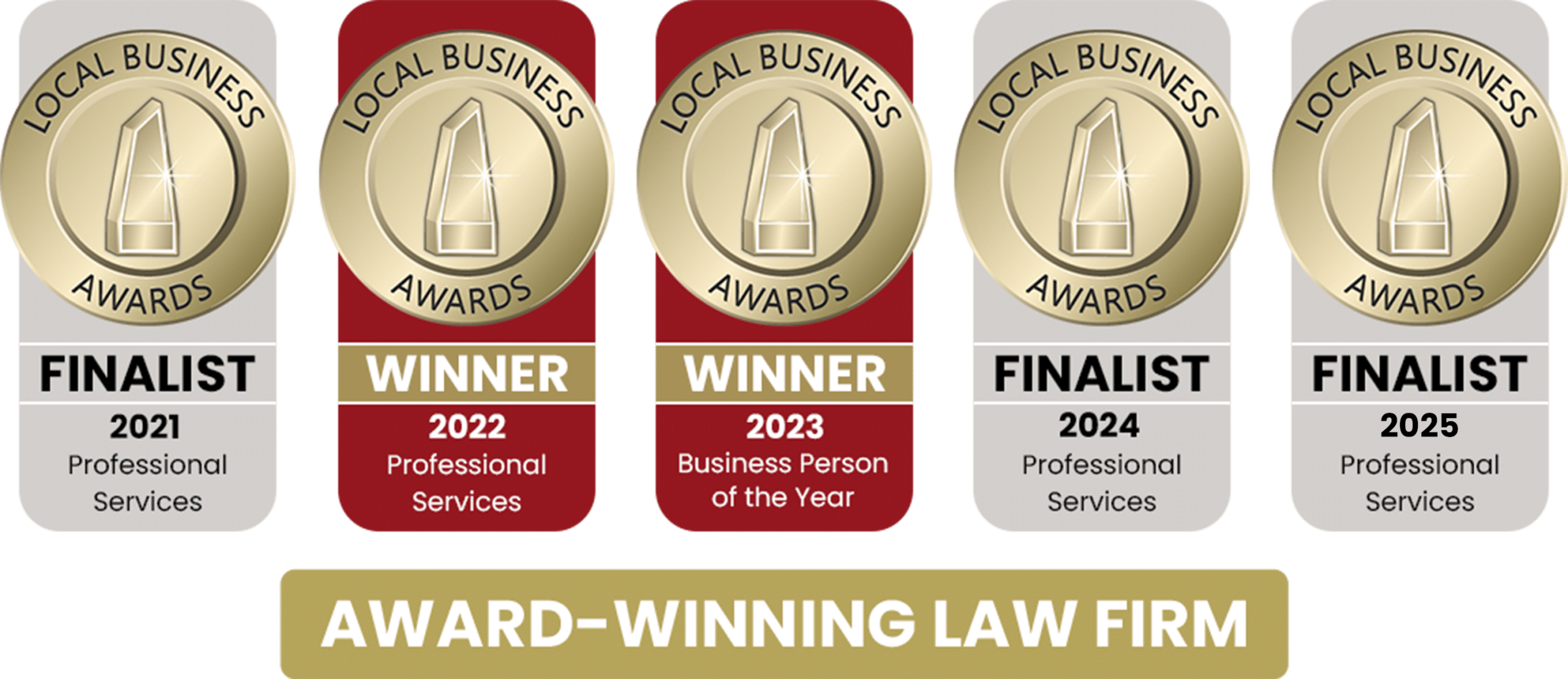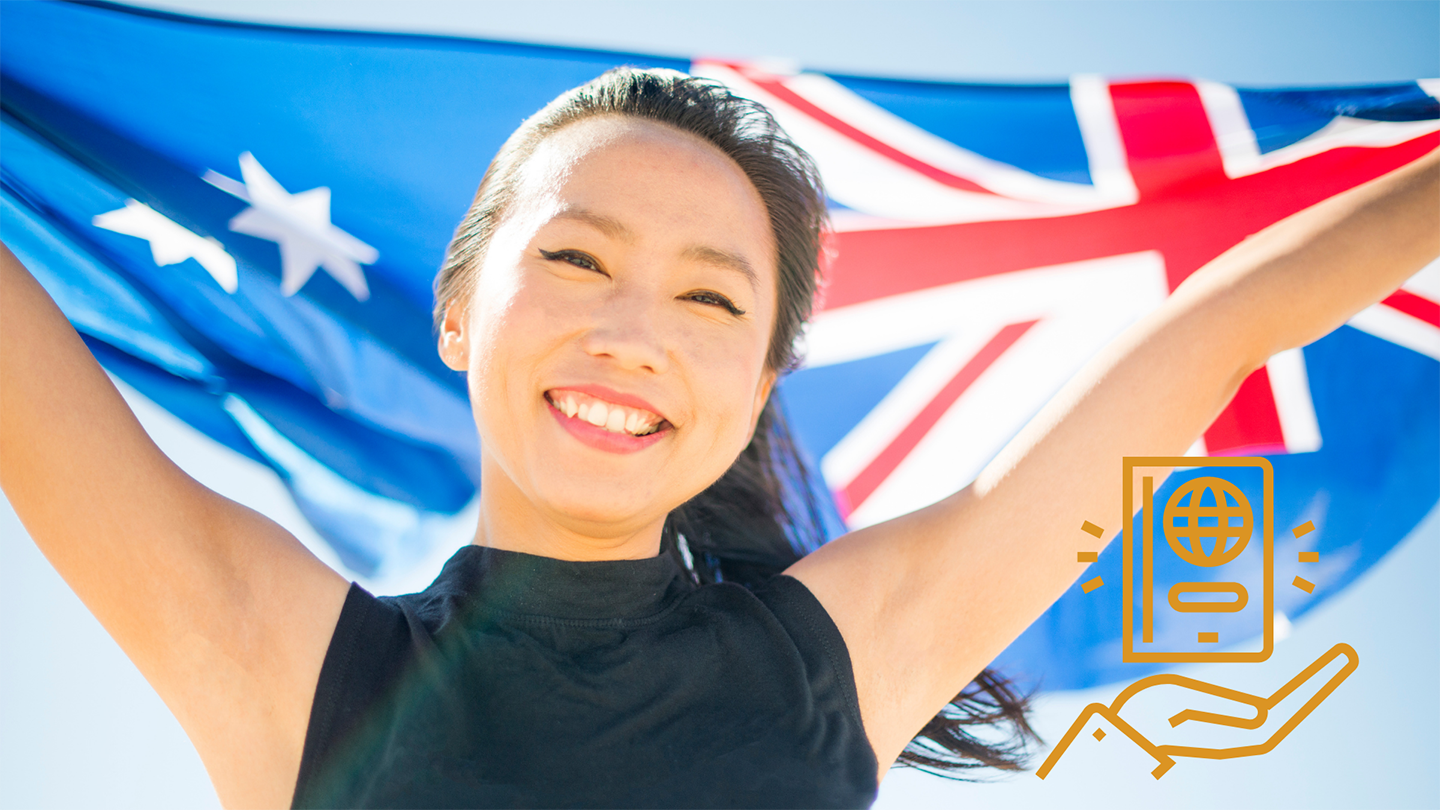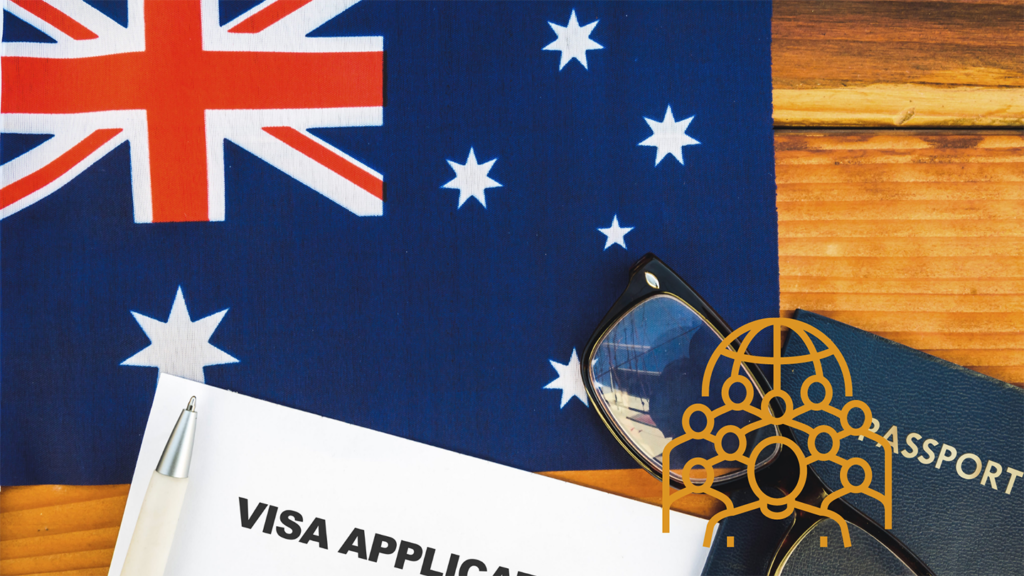BOOK YOUR CONSULTATION
This form submission is encrypted and secure.

I WANT A PATHWAY TO PR

Back to back winners of the most prestigious Local Business Awards and multiple legal excellence awards.

Our expertise and advice will guide you on a pathway to citizenship
Award-Winning Immigration Law Firm
We have been recognized for exceptional service in immigration law, winning client service excellence and leading law firm awards every year up to and including 2026.
Proven Track Record
20+ years of expertise in Immigration Appeals, Visa Applications, and Citizenship Processes mean your path to success is in experienced hands.
5 Star Reviews Everywhere
Our commitment to guiding clients through complex immigration matters has earned us 5-star reviews across the board. Your journey is our priority.
Book a Consultation Today
Your immigration goals are important to us. Call Jameson Law today to secure the professional support you need for a successful outcome.
Award-Winning Immigration Law Firm
We have won several client service excellence and leading law firm awards every year up to and including 2026.
Proven Track
Record
With 20+ years of experience, we’ve secured countless visas, appeals, and citizenship approvals for our clients.
5 Star Reviews
Everywhere
Clients trust us to deliver results, and our 5-star reviews prove our commitment to their success.
Book a
Consultation Today
Your immigration future matters. Call Jameson Law today and let us make it a reality.
Australia, the lucky country. With 29.8% of the Australian population born overseas, who wouldn’t want to move to or visit this beautiful country of sweeping plains and contrasts. This year the Australian passport has been ranked as the sixth most powerful passport in the world. If you need help moving to or visiting our great country, contact our office for a free initial consultation from one of immigration experts.
Citizenship Categories
There are a number of ways you can be become an Australian citizen.
Permanent residents or New Zealand citizens (citizen by conferral)
Eligibility requirements
Be a permanent resident or a New Zealand citizen
Be in Australia when your application is submitted and the decision is made
Have spent time in Australia and know about the country
Intend to live in Australia, or maintain a lasting link with Australia while overseas
Cost
There is a cost to apply to be a citizen. The current fee is $285, however, children under the age of 15 can apply for free.
Processing times
From the date of application to approval, the processing time is 14 to 16 months.
From the date of application to ceremony, the processing time is 18-21 months.
Persons over the age of 60 years
Eligibility requirements
Be over the age of 60 years of age
Be a permanent resident or eligible New Zealand citizen when you apply and when the decision is made about your application
You intend to live in Australia or maintain a lasting link with Australia while overseas.
Cost
An application fee applies. The current fee is $180, however, a $20 concession fee is available for concession holders.
Children of applicants under the age of 16 can apply for free.
Processing time
From the date of application to approval, the processing time is 14 months to 16 months
From the date of application to ceremony, the processing time is 18-21 months.
Your parent is an Australian citizen but you were born overseas
Eligibility requirements
Be over the age of 60 years of age
Be a permanent resident or eligible New Zealand citizen when you apply and when the decision is made about your application
You intend to live in Australia or maintain a lasting link with Australia while overseas.
Cost
An application fee applies. The current fee is $180, however, a $20 concession fee is available for concession holders.
Children of applicants under the age of 16 can apply for free.
Processing time
From the date of application to approval, the processing time is 14 months to 16 months
From the date of application to ceremony, the processing time is 18-21 months.

Australian citizenship application process
- Make sure your eligible
- Prepare and copy your supporting documents such as birth certificate, change of name certificates, marriage certificates, passports, etc. Ensure that these certificates have been officially translated into English if necessary. You may be required to have copies of your documents certified.
- Complete the application form
- Lodge your application
- Attend your appointment with the Department of Home Affairs
- Complete the citizenship test
- Wait for the outcome
- Receive the decision
- Appeal the outcome if necessary
- Attend the citizenship ceremony

Citizenship Test Requirement
The citizenship test assesses your English language skills and knowledge about Australia and Australian citizenship. Citizenship applicants between the ages of 18 and 59 will be required to satisfactorily complete the test. The topics covered include:Citizenship Ceremony
If you are over the age of 16 at the time of your application and you do not have a permanent or enduring disability, you MUST attend the citizenship ceremony to pledge your allegiance to Australia. You have 12 months from the date of your citizenship approval to attend a citizenship ceremony. If you fail to attend, your application may be reviewed and your citizenship approval revoked. The ceremony takes approximately two hours. The order of proceedings are:Visa Categories
If you are not ready to become an Australian citizen or you don’t intend to migrate to Australia, you will be required to apply for a visa. There are six visa categories with multiple sub-categories. It is essential that you apply for the correct visa to prevent being deported. They are outlined below. For further information about each sub-category, contact our team for a free initial consultation.Working and Skilled Visas (Work visas)
Studying and training visas
Refugee and humanitarian visas
Visitor visas
Family and partner visas
Other visas

Visa application process
- Find the appropriate visa category to apply for
- Ensure that you are eligible to apply for the visa selected
- Ensure you provide copies of any necessary supporting documents e.g. birth certificate, passport, marriage certificate, etc.
- Complete and lodge your application form
- Lodgement of a visa application requires payment of a fee
- Wait for the decision
- Receive the decision
- Lodge an appeal if necessary
Immigration Lawyers vs Migration Agents
Most Australian Immigration Lawyers are also Registered Migration Agents.Immigration Lawyers
- Have completed a Law Degree
- Are registered with the Law Society of their state or territory. That means they are bound by professional standards legislation.
- Are registered with the Legal Admissions Board
- Are registered with Migration Agents Registration Authority (MARA) who have a code of conduct that agents must comply with
- Can assist and advise across all immigration matters and appeals to the Administrative Appeals Tribunal, Federal Court, Federal Circuit Court and the High Court
Migration Agents
- Have completed a certificate or diploma in Migration Law
- Registered with Migration Agents Registration Authority (MARA) who have a code of conduct that agents must comply with
- Can advise and assist on Visa applications and merit reviews, however, they CANNOT advise or assist on court appeals.
Disclaimer
The above is general legal information and should not be considered legal advice. You should speak with one of our migration lawyers for legal advice tailored to your specific legal matter. The courts and tribunals deal with matters on a case by case basis. It should also be noted that there may be delays due to COVID-19.
Speak to an Expert Lawyer today

WE'RE IN IT TO WIN IT
Book your consultation
- This form submission is encrypted and secured to ensure your information remains confidential.
This form submission is encrypted and secured to ensure your information remains confidential.
What our Clients
Legal Answers ... In Short
Immigration Law: Key Updates and Resources
FAQs
Frequently Asked Questions.
Can my citizenship be revoked?
The Minister for Home Affairs can revoke your citizenship attained through application or conferral for the following reasons:
Being convicted of having made a false statement or concealed a material circumstance in connection with the citizenship application;
Citizenship was granted as a result of migration-related fraud;
Citizenship was approved as a result of migration-related fraud by a third party;
Being convicted of an offence and sentenced to 12 months imprisonment (where the offence took place before citizenship was granted);
If parents lose their citizenship (except by death), their children under the age of 18 will may also lose their citizenship;
If you are over the age of 14 and you have dual citizenship, you renounce your citizenship by acting inconsistently with your allegiance to Australia by engaging in activities associated with terrorist offences;
By serving in the armed forces of another country who is at war with Australia.
If your citizenship has been revoked, you may be able to appeal the revocation in the Administrative Appeals Tribunal. For further information, contact our Immigration Law team for a free initial consultation.
I'm a permanent resident. Can I leave and re-enter the country?
If you are an Australian permanent resident, you do not have an automatic right to re-enter Australia if you leave. Depending on the terms of your permanent residence, you may be required to apply for a Resident Return Visa. It permits you to travel in and out of Australia as many times as you like before its expiry. It is valid for five years.
Why should I apply to become a citizen?
Becoming an Australian citizen entitles you to many opportunities that are not available to Visa holders and permanent residents. These include:
Voting in federal, state/territory elections and referendums
Apply for children born overseas to become Australian citizens
Apply for a job in the Australian public service and Defence Force
Seek election to Parliament
Apply for an Australian passport and freely re-enter Australia
Ask for Australian consular assistance while overseas
Immigration Law: Success Stories
WE'RE IN IT TO WIN IT
Book your consultation
- This form submission is encrypted and secured to ensure your information remains confidential.
This form submission is encrypted and secured to ensure your information remains confidential.
Our Sydney Offices

Parramatta CBD - Head Office
- (02) 8806 0866
- 0488 817 882
- 02 9052 0840
- info@jamesonlaw.com.au
- Suite 301, 67-69 Philip St Parramatta NSW 2150
Sydney CBD - Practice Office
- 02-8806-0866
- 0488 817 882
- 02 9052 0840
- info@jamesonlaw.com.au
- Tower One Barangaroo International Towers Level 35, 100 Barangaroo Ave Sydney NSW 2000
Blacktown CBD - Practice Office
- (02) 8806 0866
- 0488 817 882
- 02 9052 0840
- info@jamesonlaw.com.au
-
Level 3 81 Flushcombe Road, Blacktown NSW 2148
(By Appointment Only)

Liverpool CBD - Practice Office
- (02) 8806 0866
- 0488 817 882
- 02 9052 0840
- info@jamesonlaw.com.au
-
Level 2, 215-219 George Street, Liverpool NSW 2170
(By Appointment Only)

Bankstown CBD - Practice Office
- (02) 8806 0866
- 0488 817 882
- 02 9052 0840
- info@jamesonlaw.com.au
-
23 Restwell Street, Bankstown NSW 2200
(By Appointment Only)


Court Houses We Frequent
Local Courts
Balmain Local Court
- 1300 679 272
- local-court-burwood@justice.nsw.gov.au
- 368 Darling Street, Balmain NSW 2041
Registry: Monday to Friday, 9:00am to 4:30pm
Bankstown Local Court
- 1300 679 272
- (02) 9722 6060
- PO Box 71 BANKSTOWN NSW 2200
- local-court-bankstown@justice.nsw.gov.au
- Cnr Chapel Road and The Mall BANKSTOWN NSW 2200
Court Operating Hours: 9:30am-4:30pm
Blacktown Local Court
- 1300 679 272
- (02) 9672 2666
- PO Box 217 BLACKTOWN NSW 2148
- local-court-blacktown@justice.nsw.gov.au
- 1 Kildare Road Blacktown NSW 2148
Registry Hours: 9:00 – 4:30
Telephone Hours: 8:30 -4:30
Days open: Mon-Fri
Burwood Local Court
- 1300 679 272
- (02) 9744 4144
- PO Box 235 BURWOOD NSW 1805
- local-court-burwood@justice.nsw.gov.au
- 7-9 Belmore Street BURWOOD NSW 2134
Registry Hours: 9:00 – 4:30
Telephone Hours: 8:30 – 4:30
Days open: Mon – Fri
Campbell Local Court
- 1300 679 272
- (02) 9821 7888
- PO Box 3435 LIVERPOOL WESTFIELDS NSW 2170
- local-court-campbelltown@justice.nsw.gov.au
- 150 George Street LIVERPOOL NSW 2170
Registry Hours: 9:00 – 4:30
Telephone Hours: 8:30 – 4:30
Days open: Mon – Fri
Central Local Court
- 1300 679 272
- (02) 4223 3633
- PO Box 5395 WOLLONGONG NSW 2500
- local-court-wollongong@justice.nsw.gov.au
- Cnr Market and Church Streets WOLLONGONG NSW 2500
Registry Hours: 9:00 – 1:00 and 2:00 – 4:30
Telephone Hours: 8:30 – 4:30
Downing Local Court
- 1300 679 272
- (02) 4223 3633
- PO Box 5395 WOLLONGONG NSW 2500
- dclc@justice.nsw.gov.au
- 143-147 Liverpool Street, Sydney NSW 2000
- Nearest Train Station: Museum Station (Liverpool Street entrance is directly opposite)
- Levels: Local Court matters are heard on levels 4 and 5.
- Public Transport: Well-served by buses and trains, with easy access to nearby bus stops and Museum Station.
- Parking: Limited street parking is available, and there are several public parking garages nearby.
Registry Hours: 9:00 – 1:00 and 2:00 – 4:30
Telephone Hours: 8:30 – 4:30
Wollongong Local Court
- 1300 679 272
- (02) 4223 3633
- PO Box 5395 WOLLONGONG NSW 2500
- local-court-wollongong@justice.nsw.gov.au
- Cnr Market and Church Streets WOLLONGONG NSW 2500
Registry Hours: 9:00 – 1:00 and 2:00 – 4:30
Telephone Hours: 8:30 – 4:30
Fairfield Local Court
- 1300 679 272
- (02) 4223 3633
- PO Box 5395 WOLLONGONG NSW 2500
- local-court-wollongong@justice.nsw.gov.au
- Cnr Spencer St & Court Rd, Fairfield NSW 2165
Registry Hours: 9:00 – 1:00 and 2:00 – 4:30
Telephone Hours: 8:30 – 4:30
Hornsby Local Court
- 1300 679 272
- (02) 9847 9955
- PO Box 96 HORNSBY NSW 1630
- local-court-hornsby@justice.nsw.gov.au
- 294 Peats Ferry Rd HORNSBY NSW 2077
Registry Hours: 9:00 – 1:00 and 2:00 – 4:30
Telephone Hours: 8:30 – 4:30
Liverpool Local Court
- 1300 679 272
- (02) 9722 6060
- PO Box 71 BANKSTOWN NSW 2200
- local-court-bankstown@justice.nsw.gov.au
- Cnr Chapel Road and The Mall BANKSTOWN NSW 2200
Registry Hours: 9:00 – 1:00 and 2:00 – 4:30
Telephone Hours: 8:30 – 4:30
Manly Local Court
- 1300 679 272
- (02) 9722 6060
- PO Box 71 BANKSTOWN NSW 2200
- local-court-bankstown@justice.nsw.gov.au
- Cnr Chapel Road and The Mall BANKSTOWN NSW 2200
Registry Hours: 9:00 – 1:00 and 2:00 – 4:30
Telephone Hours: 8:30 – 4:30
Newtown Local Court
- 1300 679 272
- (02) 9722 6060
- PO Box 71 BANKSTOWN NSW 2200
- local-court-bankstown@justice.nsw.gov.au
- Cnr Chapel Road and The Mall BANKSTOWN NSW 2200
Registry Hours: 9:00 – 1:00 and 2:00 – 4:30
Telephone Hours: 8:30 – 4:30
Parramatta Local Court
- 1300 679 272
- (02) 4223 3633
- PO Box 92 Parramatta NSW 2150, Australia
- local-court-parramatta@justice.nsw.gov.au
- 12 George Street Parramatta NSW 2150, Australia
Registry Hours: 9:00 – 1:00 and 2:00 – 4:30
Telephone Hours: 8:30 – 4:30
Penrith Local Court
- 1300 679 272
- (02) 9722 6060
- PO Box 71 BANKSTOWN NSW 2200
- local-court-bankstown@justice.nsw.gov.au
- Cnr Chapel Road and The Mall BANKSTOWN NSW 2200
Registry Hours: 9:00 – 1:00 and 2:00 – 4:30
Telephone Hours: 8:30 – 4:30
Sutherland Local Court
- 1300 679 272
- PO Box 37, Sutherland 2232
- local-court-sutherland@justice.nsw.gov.au
- Cnr Flora and Belmont Street, Sutherland NSW 2232
Registry Hours: 9:00 – 1:00 and 2:00 – 4:30
Telephone Hours: 8:30 – 4:30
Waverley Local Court
- 1300 679 272
- (02) 9722 6060
- PO Box 71 BANKSTOWN NSW 2200
- local-court-bankstown@justice.nsw.gov.au
- Cnr Chapel Road and The Mall BANKSTOWN NSW 2200
Registry Hours: 9:00 – 1:00 and 2:00 – 4:30
Telephone Hours: 8:30 – 4:30
Windsor Local Court
- 1300 679 272
- (02) 9722 6060
- PO Box 71 BANKSTOWN NSW 2200
- local-court-bankstown@justice.nsw.gov.au
- Cnr Chapel Road and The Mall BANKSTOWN NSW 2200
Registry Hours: 9:00 – 1:00 and 2:00 – 4:30
Telephone Hours: 8:30 – 4:30
Wollongong Local Court
- 1300 679 272
- (02) 9722 6060
- PO Box 71 BANKSTOWN NSW 2200
- local-court-bankstown@justice.nsw.gov.au
- Cnr Chapel Road and The Mall BANKSTOWN NSW 2200
Registry Hours: 9:00 – 1:00 and 2:00 – 4:30
Telephone Hours: 8:30 – 4:30
District Courts
Downing Centre District Court
- 1300 679 272
- PO Box 71 BANKSTOWN NSW 2200
- downingcentredc@justice.nsw.gov.au
- 143-147 Liverpool Street, Sydney NSW 2000
Registry Hours: 9:00 – 4:30
Telephone Hours: 8:30 – 4:30
Days open: Mon – Fri
Parramatta District Court
- (02) 8688 7777
- local-court-bankstown@justice.nsw.gov.au
- 12 George Street, Parramatta NSW 2150
Registry Hours: 9:00 – 4:30
Days open: Mon-Fri
Penrith District Court
- 1300 679 272
- local-court-penrith@justice.nsw.gov.au
- 64-72 Henry Street, Penrith NSW 2750
Registry Hours: 9:00 – 4:30
Days open: Mon-Fri
Campbelltown District Court
- 1300 679 272
- local-court-campbelltown@justice.nsw.gov.au
- Railway Street, Campbelltown NSW 2560
Registry Hours: 9:00 – 4:30
Days open: Mon – Fri
Liverpool District Court
- 1300 679 272
- local-court-liverpool@justice.nsw.gov.au
- 150 George Street, Liverpool NSW 2170
Registry Hours: 9:00 – 4:30
Days open: Mon – Fri
Wollongong District Court
- 1300 679 272
- local-court-wollongong@justice.nsw.gov.au
- 97-99 Market Street, Wollongong NSW 2500
Registry Hours: 9:00 – 1:00 and 2:00 – 4:30
Telephone Hours: 8:30 – 4:30
Supreme Courts
Supreme Court New South Wales
- 1300 679 272
- (02) 9230 8025
- (02) 9230 8233
- GPO Box 3 Sydney NSW 2001 Australia
- sc.enquiries@justice.nsw.gov.au
- Law Courts Building 184 Phillip Street Sydney NSW 2000
Registry Hours: 9:00 AM – 4:30 PM
Telephone Hours: 8:30 AM – 4:30 PM
Days Open: Monday to Friday
Federal Court
Federal Circuit and Family Court of Australia
- 1300 352 000
- (02) 9230 8000
- GPO Box 9991, Sydney NSW
- enquiries@fcfcoa.gov.au
- Lionel Bowen, Building, 97/99 Goulburn St, Sydney NSW 2001
Registry Hours: 9:00 AM – 4:30 PM
Telephone Hours: 8:30 AM – 5:00 PM
Days Open: Monday to Friday
Federal Court
- 1300 720 980
- (02) 9230 8020
- GPO Box 9991, Sydney NSW
- enquiries@fedcourt.gov.au
- 97-99 Goulburn St in the heart of the Sydney CBD
Monday to Friday, 8:30 AM – 4:30 PM
High Court
- (02) 6270 6811
- (02) 6270 6868
- Parkes Place, Canberra ACT 2600
- enquiries@hcourt.gov.au
- Parkes Place, Canberra ACT 2600
Monday to Friday, 8:30 AM – 5:00 PM
Specialised Courts
Children’s Court of New South Wales
- 1300 679 272
- (02) 9722 6060
- Cnr Chapel Road and The Mall BANKSTOWN NSW 2200
- PO Box 71 BANKSTOWN NSW 2200
- sc.enquiries@justice.nsw.gov.au
Registry Hours: 9:00 AM – 4:30 PM
Telephone Hours: 8:30 AM – 4:30 PM
Days Open: Monday to Friday
Coroner’s Court New South Wales
- 1300 679 272
- (02) 9230 8025
- (02) 9230 8233
- GPO Box 3 Sydney NSW 2001 Australia
- sc.enquiries@justice.nsw.gov.au
- Law Courts Building 184 Phillip Street Sydney NSW 2000
Registry Hours: 9:00 AM – 4:30 PM
Telephone Hours: 8:30 AM – 4:30 PM
Days Open: Monday to Friday
Industrial Relations Commission of New South Wales
- 1300 679 272
- (02) 9230 8025
- (02) 9230 8233
- GPO Box 3 Sydney NSW 2001 Australia
- sc.enquiries@justice.nsw.gov.au
- Law Courts Building 184 Phillip Street Sydney NSW 2000
Registry Hours: 9:00 AM – 4:30 PM
Telephone Hours: 8:30 AM – 4:30 PM
Days Open: Monday to Friday
Land and Environment Court of New South Wales
- 1300 679 272
- (02) 9230 8025
- (02) 9230 8233
- GPO Box 3 Sydney NSW 2001 Australia
- sc.enquiries@justice.nsw.gov.au
- Law Courts Building 184 Phillip Street Sydney NSW 2000
Registry Hours: 9:00 AM – 4:30 PM
Telephone Hours: 8:30 AM – 4:30 PM
Days Open: Monday to Friday

